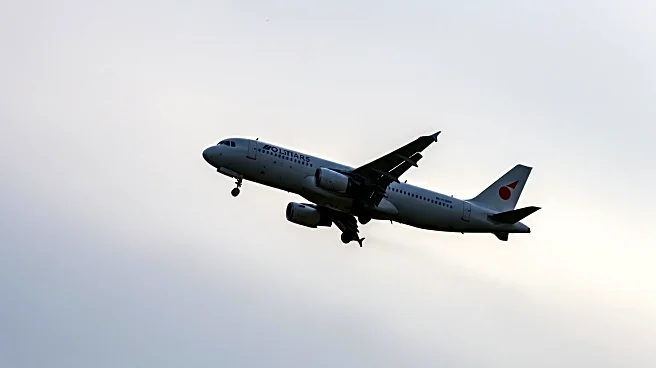What's Happening?
Air Canada has halted its plans to resume operations after the union representing 10,000 flight attendants defied a return-to-work order. The strike, affecting approximately 130,000 travelers daily, was initiated due to disputes over pay and working conditions. The Canada Industrial Relations Board had ordered staff back to work, but the union refused, citing unfair processes and challenging the order's constitutionality. The strike has led to significant disruptions, with Air Canada offering refunds and alternative travel options, though rebooking is challenging due to peak summer travel.
Why It's Important?
The strike highlights ongoing labor disputes within the airline industry, particularly concerning fair compensation and working conditions. The disruption affects not only travelers but also the broader economy, as Air Canada is a major player in the aviation sector. The situation underscores the challenges airlines face in balancing operational costs with employee satisfaction, especially amid economic pressures like inflation. The union's defiance may set a precedent for other labor groups, potentially influencing future negotiations and labor relations in the industry.
What's Next?
Air Canada plans to resume flights by Monday evening, but the union's continued defiance could prolong disruptions. The government and the Canada Industrial Relations Board may need to intervene further to resolve the impasse. The outcome of this dispute could impact future labor negotiations and policies within the airline industry, as stakeholders seek to address the underlying issues of pay and working conditions. Travelers affected by the strike will need to monitor updates for potential changes in flight schedules and rebooking options.











